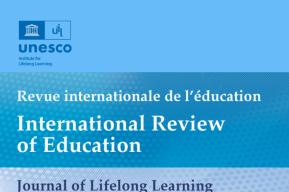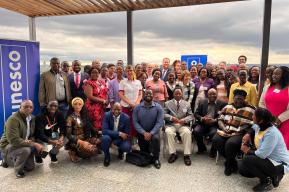News
New IRE issue: The Faure report - 50 years on
The latest special issue of the International Review of Education (IRE) marks the fiftieth anniversary of Learning to be: The world of education today and tomorrow, better known as the Faure report.
The report was the work of the International Commission for the Development of Education, established by UNESCO in 1970 and chaired by Edgar Faure, former French Minister of Education.
Published at a time when some of UNESCO’s competitor organizations were embracing what the editors of this special issue term ‘a functionalist and productivity-oriented view of education, underpinned by human capital theory’, the report reinforced UNESCO’s humanistic approach to education, urging that ‘lifelong education’ become the ‘master concept’ for education globally and calling for the creation of a ‘learning society’.
The new special issue, guest-edited by Maren Elfert and Alexandra Draxler, situates the report in its intellectual and historic context and explores the contemporary relevance of its ideas, noting the re-emergence of and renewed engagement with some of its key themes, for example in the recent report of UNESCO’s International Commission on the Futures of Education (ICFE).
Through its seven articles, written by some of the leading scholars in the fields of lifelong learning and the global governance of education, the issue examines, among other issues, how the objective of lifelong learning has shifted towards economic growth and employability in the past five decades; the role of technology in education and the emergence of ‘techno-solutionism’ in education policy; and the ‘neuroliberal turn towards mainstreaming neuroscience, digital technology and transhumanism’ and its compatibility with UNESCO’s humanistic vision.
The authors also address the concept of the ‘social contract’, lately revived in the ICFE report, the difference between socialist and capitalist models of lifelong education, and the report’s concept of the ‘universal man’ and its ‘situatedness in the project of modernity’.
The Faure report is an example of a ‘promissory vision for the future’, providing ‘both an overall vision and legitimacy to UNESCO’, the guest editors argue in their introduction. As with other such visions, they note, its ‘promises of a better future, greater equality, social justice, and a more democratic education’ have not been realized. There is growing resistance to universal ideas and the homogenization that can arise from them. This special issue eschews universal answers, they write, and should be read instead as ‘an invitation to enter into dialogue and to question the master narratives of the past, the present and the future’.









